Iran's Former Vice President Lambasts Decision To Disqualify Rouhani
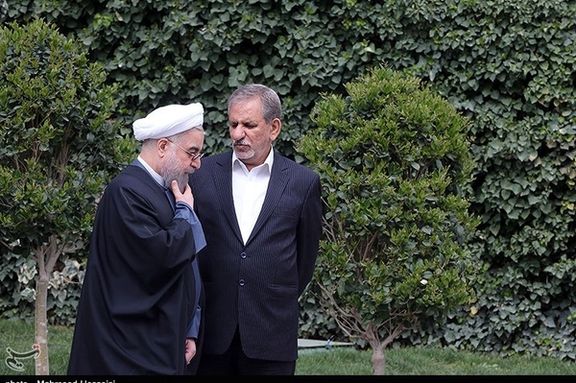
Iran’s former vice president has criticized the Guardian Council’s decision to bar former president Hassan Rouhani from running in the upcoming election.

Iran’s former vice president has criticized the Guardian Council’s decision to bar former president Hassan Rouhani from running in the upcoming election.
“How can someone who had been the secretary and the chairperson of the Supreme National Security Council, who had served several terms as a member of the parliament and the Assembly of Experts be disqualified?” Es’haq Jahangiri said.
Jahangiri stressed that “today, more than ever,” the Islamic Republic needs to restore hope and gain people’s trust, amid dire economic and sociopolitical hardships.
On Wednesday, Iranian hardliners controlling a conspicuous vetting mechanism told the former president that he was barred from running for re-election at the Assembly of Experts that will elect the next Supreme Leader after Ali Khamenei’s death.
However, the Iranian public remains indifferent to Rouhani’s disqualification. Iran International TV analyst Mehdi Mahdavi Azad said Rouhani left a legacy of disappointment after over 20 million Iranians voted for him in 2013 and 2017 before he aligned with Supreme Leader Ali Khamenei and his supporters.
Now, Khamenei has effectively alienated all of Iran’s former presidents, including Rouhani, who was once believed to be one of the candidates for succession as Supreme Leader. He is the last one to be jettisoned out of what many see as Khamenei’s sinking ship.
Iran’s parliamentary and Assembly of Experts elections are to be held on March 1. According to the results of the vetting process, the Guardian Council has only allowed hardliners and supporters of the regime to run as candidates.
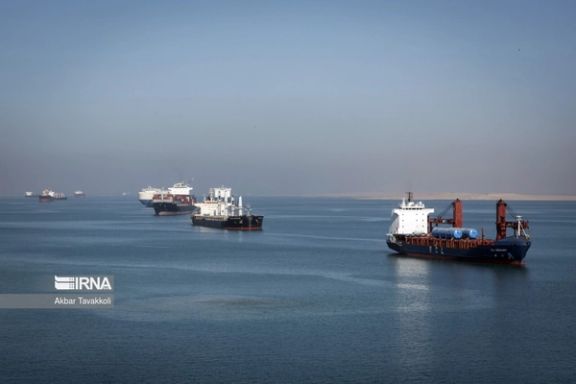
China has called on Iran to intervene in the Red Sea shipping blockade by the Iran-backed Houthis, Reuters reports.
The Yemeni militia have disrupted the Red Sea with dozens of attacks in solidarity with Gaza militants Hamas since the Palestinian group declared war on Israel on October 7.
Meetings have allegedly taken place in Beijing and Tehran as China aims to protect its own shipping, threatening that if action isn’t taken by Iran to reign in its proxy, business relations between the two nations will be at risk.
"Basically, China says: 'If our interests are harmed in any way, it will impact our business with Tehran. So tell the Houthis to show restraint'," Reuters quoted an Iranian official briefed on the talks, speaking on condition of anonymity.
The attacks, which began in November, have raised the cost of shipping and insurance by disrupting a key trade route between Asia and Europe used widely by ships from China. The passage is responsible for 12 percent of global trade.
For the last decade, China has been Iran’s biggest trading partner, with Chinese oil refiners buying over 90 percent of Iran’s crude exports last year alone, according to Kpler.
While global sanctions weigh heavily on Iran, China has offered a lifeline, gaining huge discounts in the process, though Iran’s oil only accounts for 10 percent of China’s crude imports.
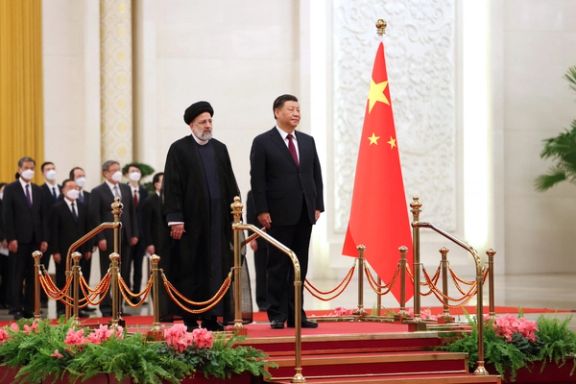
Though the two nations signed a 25-year economic cooperation agreement in 2021, China has not invested as much as was hoped in Tehran, nor engaged in non-oil trade to the extent envisaged.
Iranian state media says Chinese firms have only invested $185 million since then. State media also said last year that Iranian non-oil exports to China fell 68% in the first five months of 2023 while Iran's imports from China rose 40%.
By contrast, Chinese companies committed last year to invest billions in Saudi Arabia after the countries signed a comprehensive strategic partnership in December 2022.
China has been slowly increasing its influence in the region as was seen in last year’s reinstating of ties between Iran and Saudi Arabia after seven years of tensions, China among the nations facilitating the detente.
However, while China holds sway in Tehran, the situation is complex. Tehran risks backlash from its proxies in Lebanon, Syria and Iraq, which have also been acting in allegiance with Hamas against both Israeli and US targets since the Gaza war began.
China's ministry of foreign affairs told Reuters: "China is a sincere friend of the countries of the Middle East and is committed to promoting regional security and stability and seeking common development and prosperity."
"We firmly support Middle Eastern countries in strengthening their strategic independence and uniting and collaborating to resolve regional security issues," without directly referring to the talks over the Red Sea passage. Iran's foreign ministry did not comment.
The disruption by the Yemeni militia, trained and backed by Tehran, has triggered military strikes by the US and British forces but it has failed to stem the tide.
According to Reuters, a senior US official said Washington had asked China to use its leverage with Iran to persuade it to restrain the Houthis, including in conversations Secretary of State Antony Blinken and National Security Advisor Jake Sullivan had this month with senior Chinese Communist Party official Liu Jianchao.
Iran denied the claims that China had since expressed concerns but on January 14, China's foreign minister Wang Yi called to end the attacks on civilian ships in the Red Sea, though did not name the Houthis or reference Iran.
On Thursday, Houthi spokesman Mohammed Abdulsalam said Iran had not conveyed any message from China about scaling back attacks.
"They will not inform us of such a request, especially since Iran's stated position is to support Yemen. It condemned the American-British strikes on Yemen, and considered Yemen's position honourable and responsible," he told Reuters.
While Tehran claims that the Houthis’ action is independent, in spite of the blockade being called for by Iran’s Supreme Leader himself, the complexity of Iran’s shadow war against Israel and the US continues, and the influence of China yet to be seen.
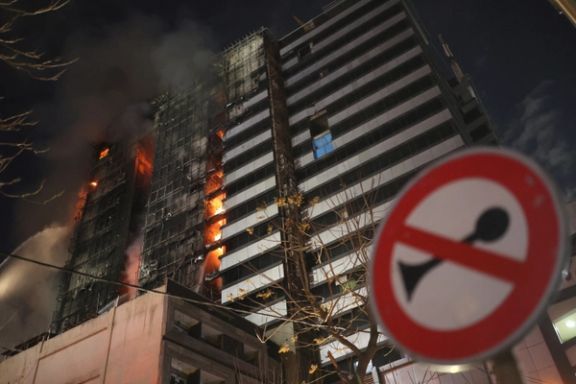
Hours after a fire broke out in the Gandhi Hospital in Tehran on Thursday, city officials have started a blame game in an attempt to shirk their responsibilities.
“We had three meetings with the management of the Gandhi Hospital before the incident and issued the necessary warnings regarding the safety of the building”, said Mehdi Khosravani, crisis manager of the 6th district of Tehran municipality, where the hospital is located.
According to the official, the Gandhi Hospital was required to have a consultant on how to implement the most advanced firefighting and fire alarm systems in order to maintain safety in the building.
“In general, we have warned about 40 large public and private hospitals in this district over their unsafe conditions”, he stressed.
Motahar Mohammadkhani, the spokesperson for Tehran municipality, also blamed the hospital’s management for the blaze. “This would not have happened if the hospital administrators had heeded earlier warnings. The judicial system should step in,” he stated.
Meanwhile, Hossein Nazari, deputy of urban services of Tehran municipality, said images broadcast made the fire look larger than the reality due to the composite façade of the building. “The fire was an ordinary one,” he claimed, downplaying the scale of the incident.
State TV said the area was cordoned off and the hospital evacuated.
Pedram Pak-Ayin, the spokesperson for Iran’s Health Ministry, said that “none” of the staff and patients at the Gandhi Hospital were harmed but said patients were transferred to other medical centers.
The exact cause of the fire has yet to be determined.
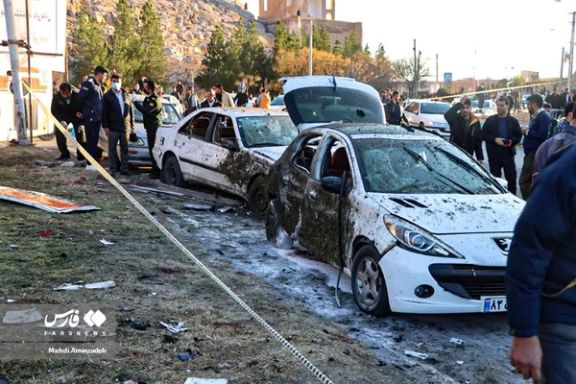
Iran has dismissed reports claiming the US warned Tehran prior to recent twin bombings by ISIS in Iran.
“If a security message was passed on by the US, it was intended to protect Washington from Iran’s response, especially after the Israeli war in Gaza,” IRNA quoted an Iranian security official as saying.
The Wall Street Journal reported on Thursday that the US had warned the Islamic Republic of the impending bombings which claimed the lives of 95 people in Kerman earlier this month.
In spite of the warning that Islamic State’s affiliate in Afghanistan, ISIS-Khorasan, known as ISIS-K, planned to commit the attacks at the commemoration ceremony of slain Qods Force commander Qassem Soleimani, Iran failed to prevent the deadly bombings, the report added.
Separately, Iran International has learned that the US passed the warning to Iran more than one week before the attack.
Speaking to Iran International, a US official said, “Prior to ISIS’ terrorist attack on January 3, 2024, in Kerman, Iran, the US Government provided Iran with a private warning that there was a terrorist threat within Iranian borders.
“The US Government followed a longstanding ‘duty to warn’ policy that has been implemented across administrations to warn governments against potential lethal threats. We provide these warnings in part because we do not want to see innocent lives lost in terror attacks.”
The attack was the deadliest since the birth of the Islamic Republic in 1979. Many Iranians questioned why Soleimani’s family members and top officials were absent from the memorial at his gravesite in Kerman, raising the validity of the US warning as to their absence.
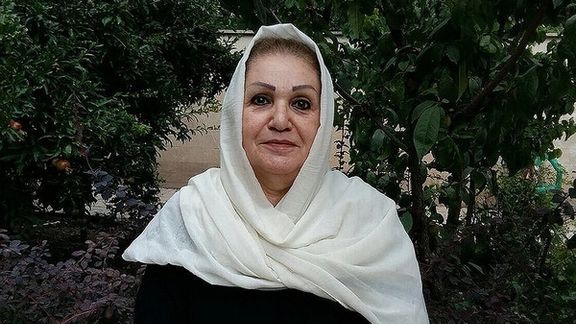
Iranian human rights activist Raheleh Rahemipour was taken to hospital on Thursday following a heart attack.
Rahemipour is one of the four political prisoners in the women’s ward of Evin who are over 70 years old. She was imprisoned in November to serve a five-year prison sentence, despite suffering from a brain tumor and other ailments.
Tehran’s Revolutionary Court headed by notorious Judge Abolqasem Salavati sentenced Rahemipour to six years in prison over such allegations as “propaganda against the government” and attempts to “disrupt national security.”
Her brother, Hossein Rahemipour, was also a political prisoner who was executed in 1984. His child, born in Evin prison, was never handed over to his family after his execution.
A group of 61 women political prisoners went on a hunger strike in the women’s ward of Evin on Thursday to protest the Islamic Republic’s ruthless execution spree, including the execution of Mohammad Ghobadlou.
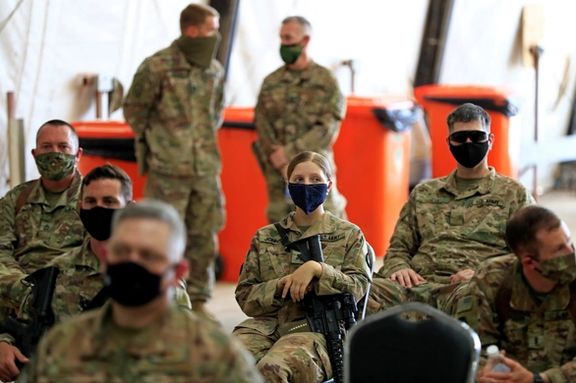
The Biden administration is set to move towards a reduced role for the US military in Iraq, amid continuing attacks by Iran proxies on American interests in the region.
In a statement published Thursday, secretary of defense Lloyd Austin confirmed that the US-Iraqi Higher Military Commission (HMC) will convene meetings in the “coming days” to discuss new ways of cooperation in the post-ISIS era.
The statement has been widely read as the beginning of the end of US military presence in Iraq, despite the Pentagon’s categorical rejection of that reading.
“Let me be clear, the HMC meeting is not a negotiation about the withdrawal of US forces from Iraq,” Pentagon’s deputy press secretary Sabrina Singh said in a briefing Thursday. “The United States and the coalition are in Iraq at the invitation of the Iraqi government to fight ISIS. The HMC will enable the transition to an enduring bilateral security partnership between the US and Iraq.”
The timing of the announcement has led many to believe it is related to the regional crisis following the Hamas’ attack on Israel and the Israeli onslaught on Gaza.
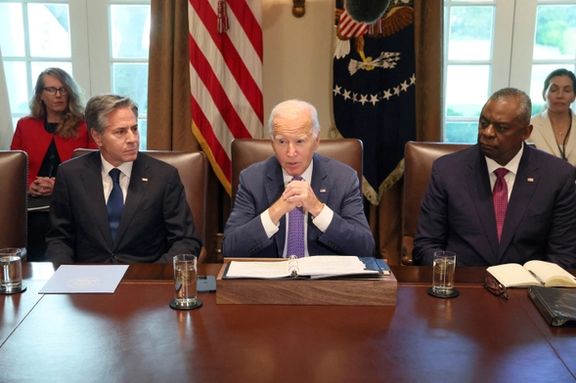
Since last October, American bases in Iraq and Syria have been targeted more than 150 times by Iran-backed groups, and Tehran has repeated its threats that the 'Resistance Front' will evict the US from the region. Shiite groups in Iraq supported by Iran have also intensified their calls for all foreign forces to leave the country.
It is hard to tell if that demand has forced the Pentagon announcement – or if it would be on the agenda during the coming HMC talks.
Austin’s statement lacks clarity and detail, which leaves it open to interpretation. It speaks of “transition”, “process”, “timeline”, and “evolving” relationship, all of which can point to a strategic shift from direct military presence to security cooperation. But any shift, according to the statement, would be contingent on “ISIS threat”, “operational requirements”, and the “capability” of Iraqi forces, which can always be used to justify continuous US military presence in Iraq.
The Iraqi party, however, seems to be clearer about its negotiation objectives.
The aim, according to a statement from Iraq’s foreign ministry, is to come up with a “clear timeline determining the duration of the presence of the international coalition advisors in Iraq, initiating a gradual and thoughtful reduction of their presence on Iraqi soil, concluding the military mission against [ISIS], and transitioning to comprehensive bilateral relations with coalition countries.”
The Iraqi parliament has voted to oust American forces from Iraq. But the Biden administration says it is yet to be asked to do so formally.
Any negotiation between the Iraqis and the Americans will be closely watched from Tehran – and by Assad and the Kurdish forces in the area. A full withdrawal, if it ever happens, would likely put the Iranian regime in a much stronger position than it already is in Iraq and Syria.
Earlier in the week, it was reported that the Biden administration may be considering a full withdrawal of American troops from Syria in 2024. That report was also swiftly rejected by the Pentagon as “erroneous.”
There are about 2,500 American troops in Iraq and about 900 in Syria. The numbers are small when compared to the numbers in the early years after the Bush-led invasion of Iraq. At its peak, there were almost 170,000 US forces on the ground in Iraq.